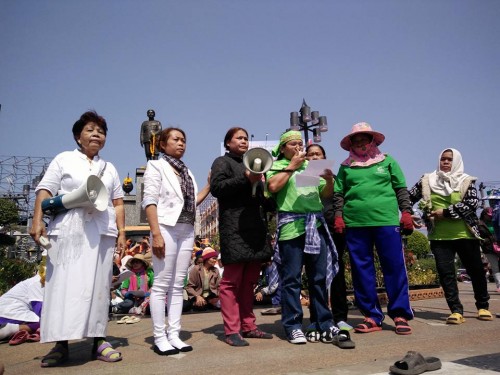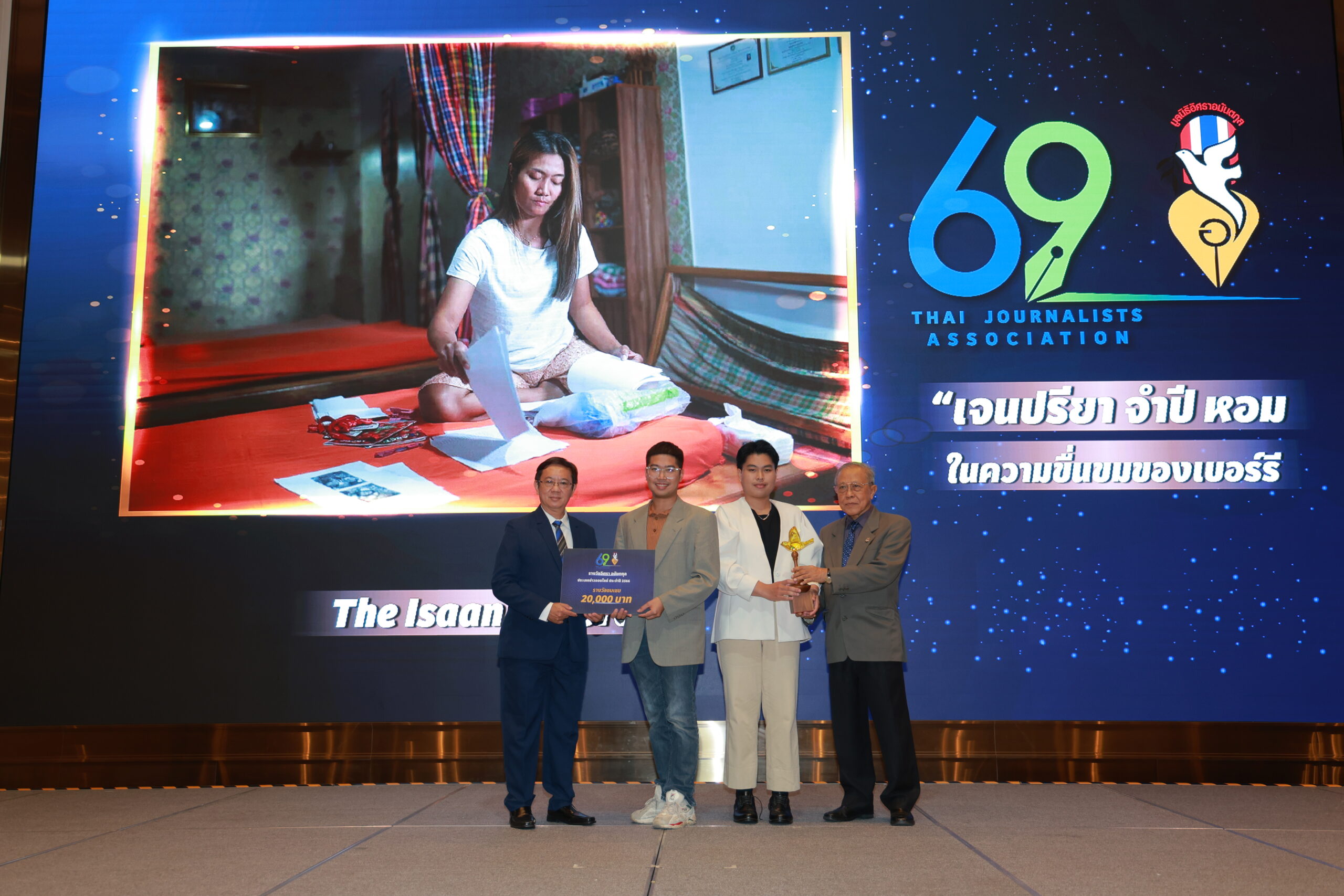UDON THANI – Today, one hundred activists in a local environmental group opposing a new potash-mining project in Udon Thani showed up at the city’s Prajak Silpakhom military camp for “attitude adjustment.”
Officers of the 23rd Military Circle Command had summoned six members of the Udon Thani Environment Conservation Group by phone to attend an “attitude adjustment” session at the Prajak Silpakhom military camp, according to a report by the Thai Lawyers For Human Rights Center.
The summons for “attitude adjustment” followed an anti-mine protest on February 7 in which activists had read out a statement including the phrase “may the dictatorship be destroyed,” which prompted the military to take action.

The Udon Thani Environment Conservation Group was summoned by the military following their February 7 protest of a new potash mining project in Prachaksinlapakhom District. Photo credit: Thai Lawyers For Human Rights Center
During the protest, about 200 activists of the environmental group led a traditional long-drum procession through the city to express their opposition to the potash mine project. The activists distributed leaflets to bystanders and carried protest signs calling on the government to intervene.
Military and police officers took photos and videos of the activists and attempted to confiscate the protest signs. But the procession was allowed to proceed to the Prince of Prajak Silapakhom Monument in the city center, where the activists read out their statement criticizing the state’s development policy and demanding for respect of community rights.
Today at 9:00 am, about 100 village supporters of the Udon Thani Environment Conservation Group gathered in front of the Prajak Silpakhom military camp and demanded to be allowed to enter the premises.
After negotiating with the military command, nine representatives of the group entered the military camp, while the crowd of villagers – which had swelled to over one hundred – waited outside.
Military officers told the nine representatives that their protest movement was not banned, but asked them to refrain from using slogans that included the word “dictatorship” because this could anger high-ranking military members.
After the talk ended, the nine activists agreed to provide their home address and have a group photo taken with the military officers.
Before the crowd of village protesters left the area in front of the camp, military personnel distributed blankets in a move to appease the villagers.





